AHA Scientific Sessions 2023 Late-Breaking Science Coverage
Published: 30 October 2023
-
Views:
 2421
2421
-
Likes:
 7
7
-
Views:
 2421
2421
-
Likes:
 7
7
-
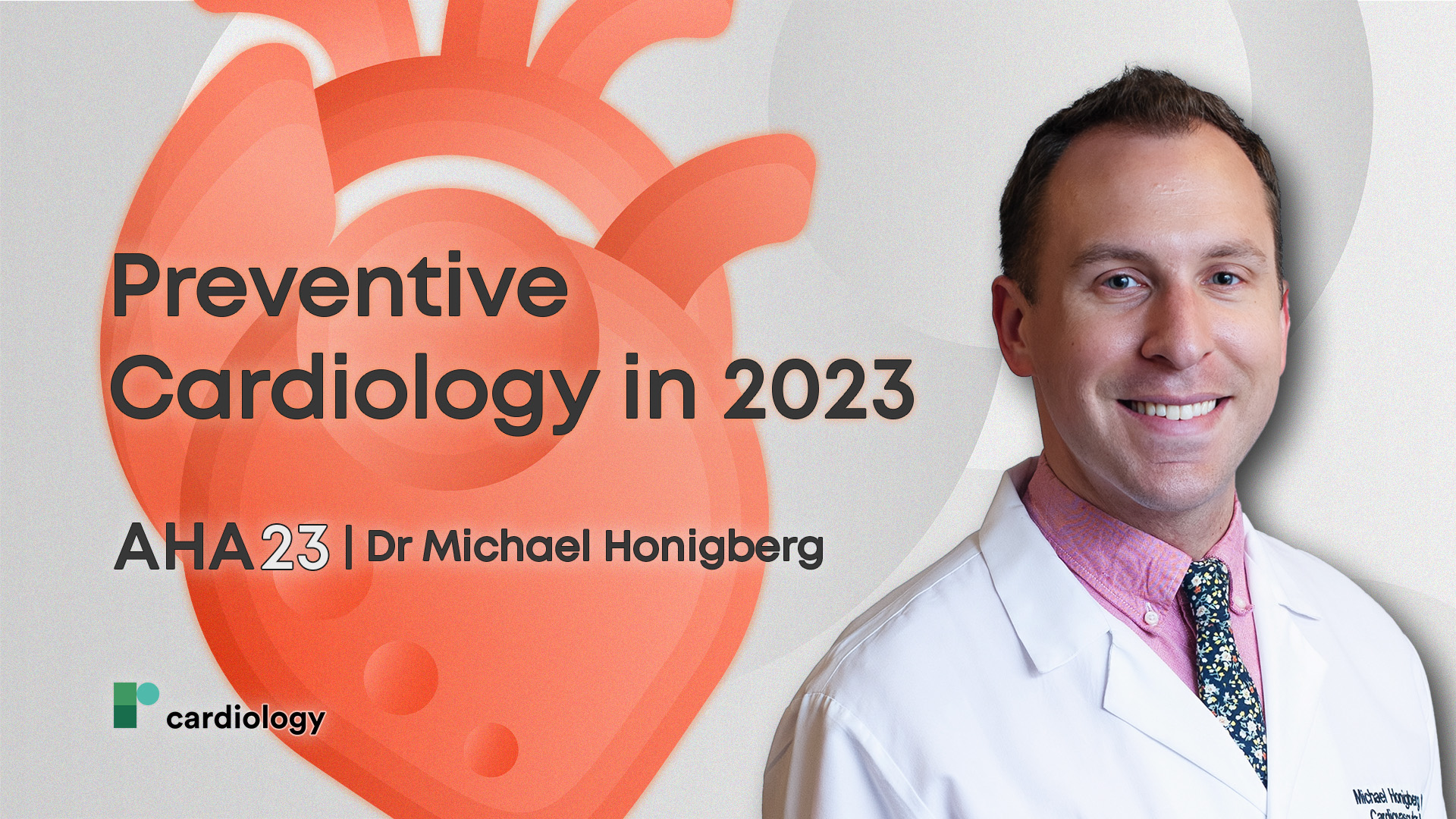 7m 3sPart 4 | Session 1 Preventive Cardiology Highlights in 2023
7m 3sPart 4 | Session 1 Preventive Cardiology Highlights in 2023 -
 10m 59sPart 4 | Session 2 3 Trials That Will Change My Practice With Dr Parwani
10m 59sPart 4 | Session 2 3 Trials That Will Change My Practice With Dr Parwani -
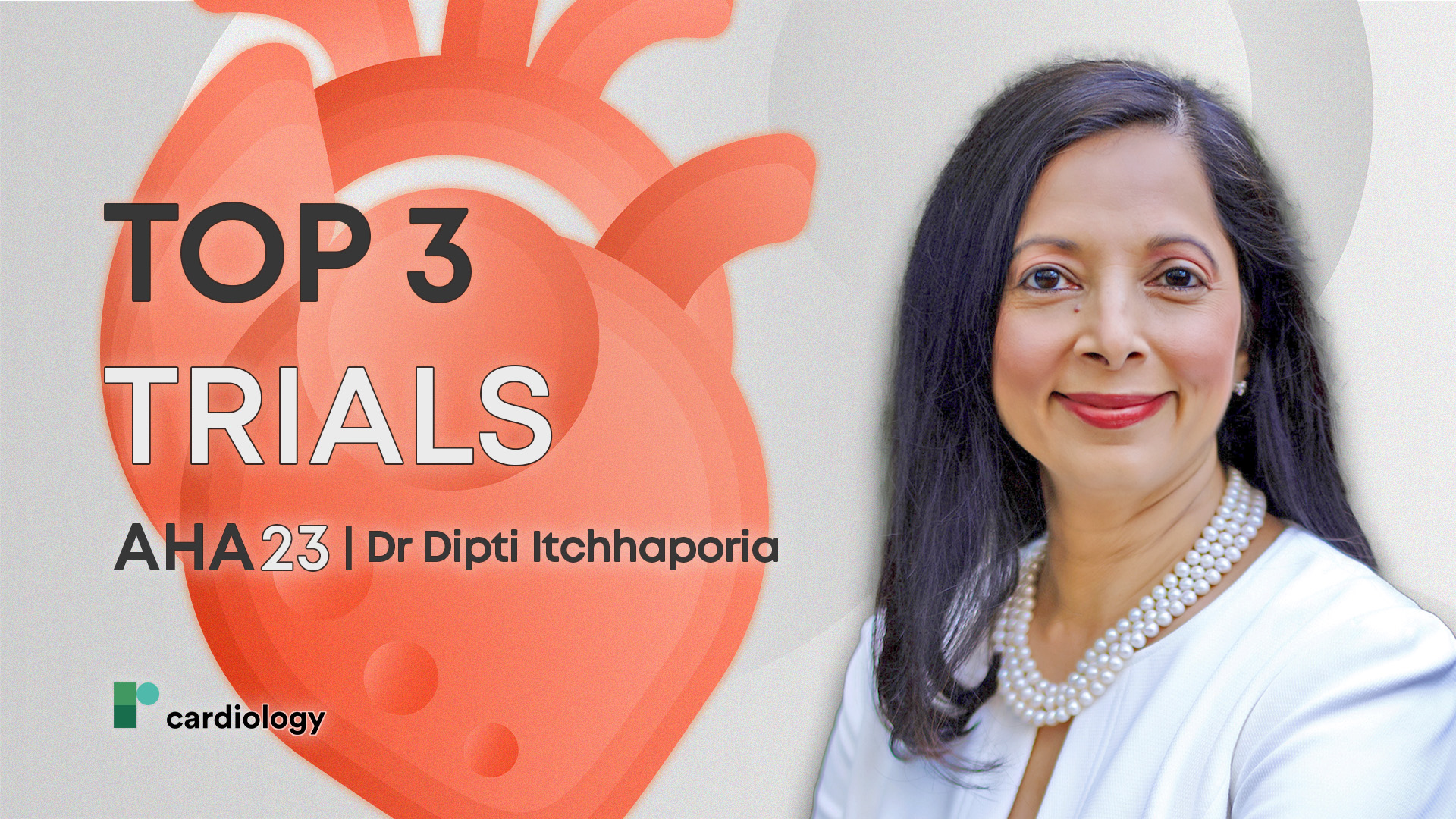 7m 20sPart 4 | Session 3 3 Trials That Will Change My Practice With Dr Itchhaporia
7m 20sPart 4 | Session 3 3 Trials That Will Change My Practice With Dr Itchhaporia
-
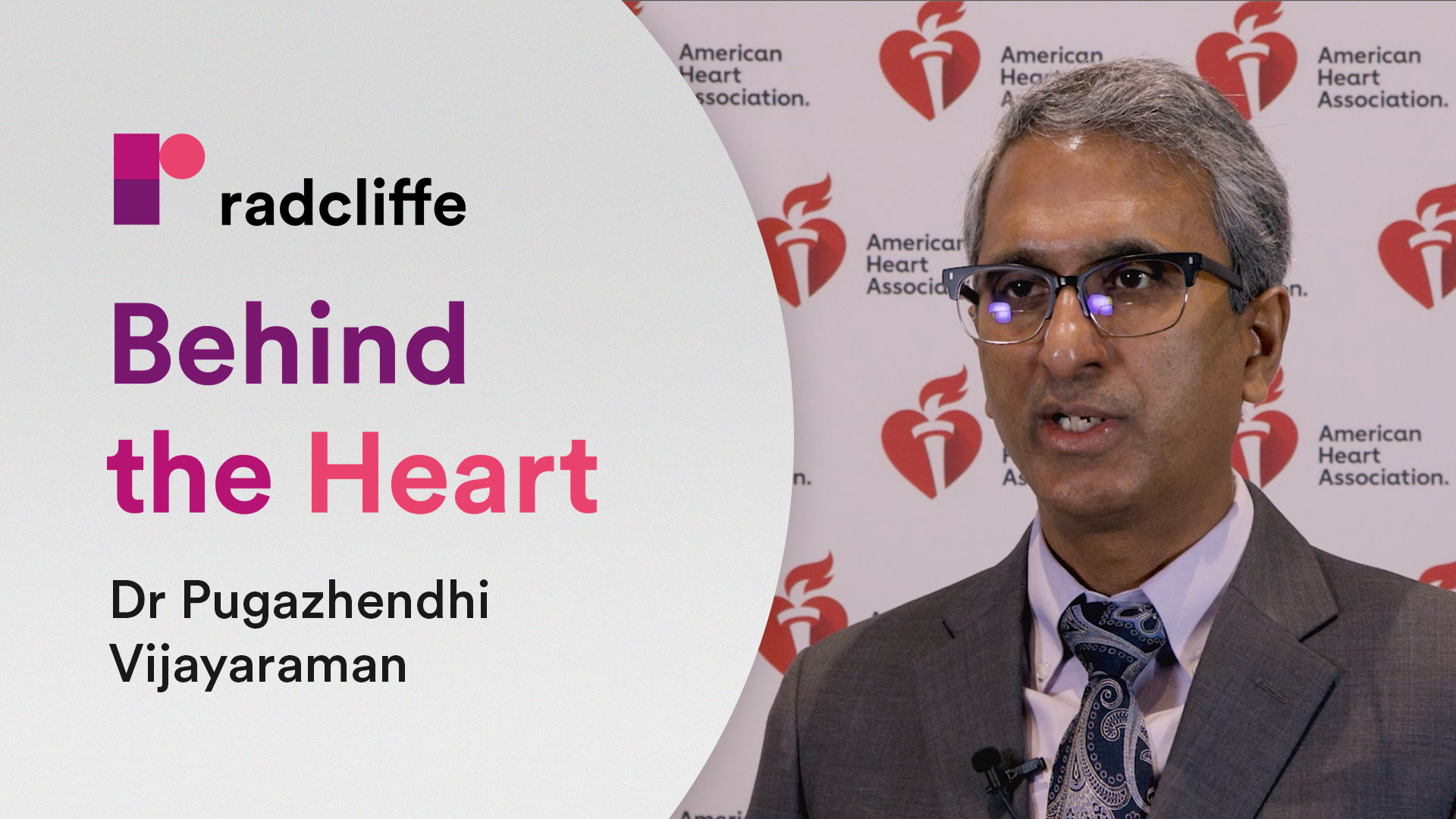 2mPart 5 | Session 1 Solving Problems with Dr Pugazhendi Vijayaraman
2mPart 5 | Session 1 Solving Problems with Dr Pugazhendi Vijayaraman -
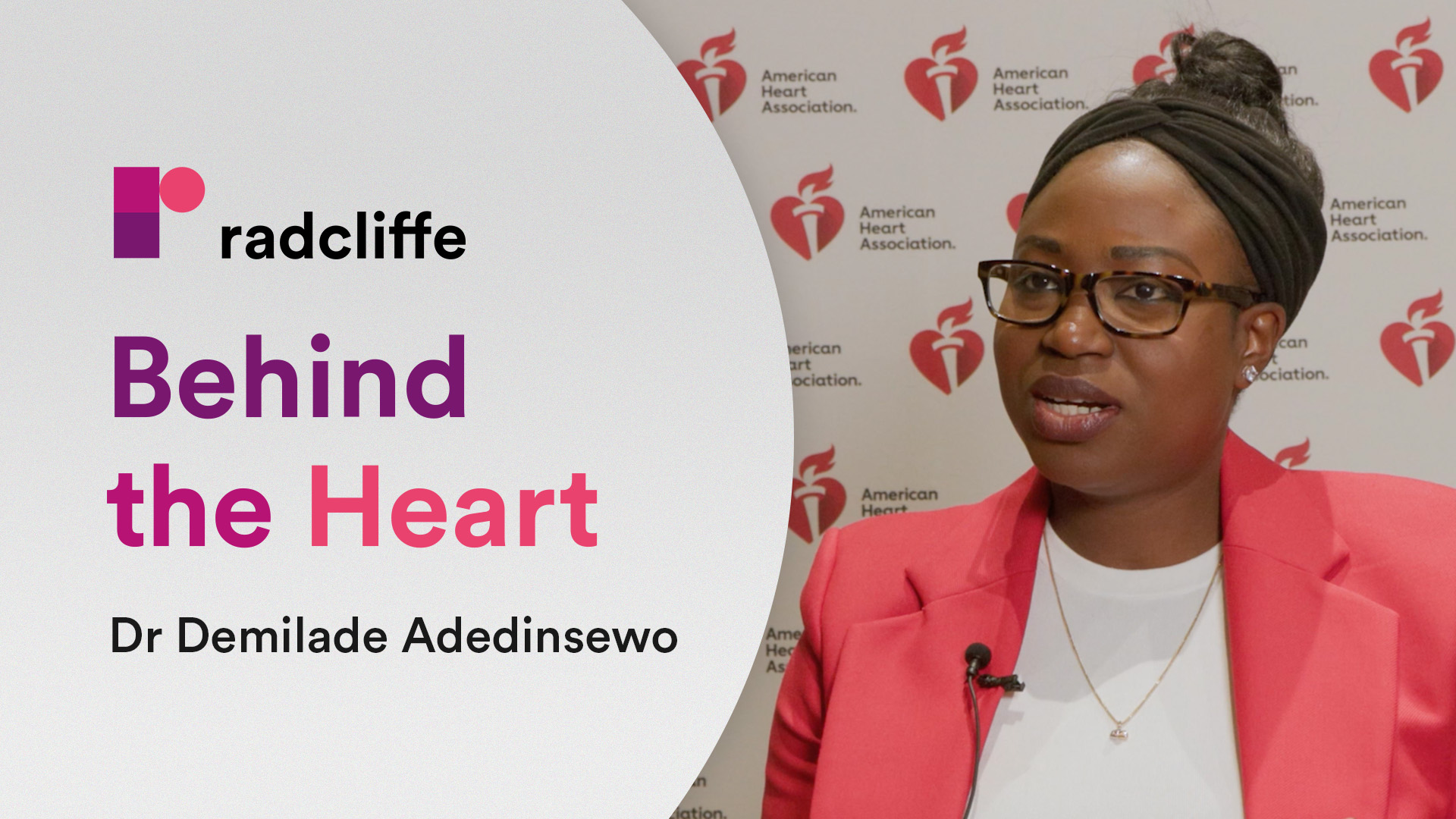 1m 36sPart 5 | Session 2 Advice for Early-Career Researchers With Dr Demilade Adedinsewo
1m 36sPart 5 | Session 2 Advice for Early-Career Researchers With Dr Demilade Adedinsewo -
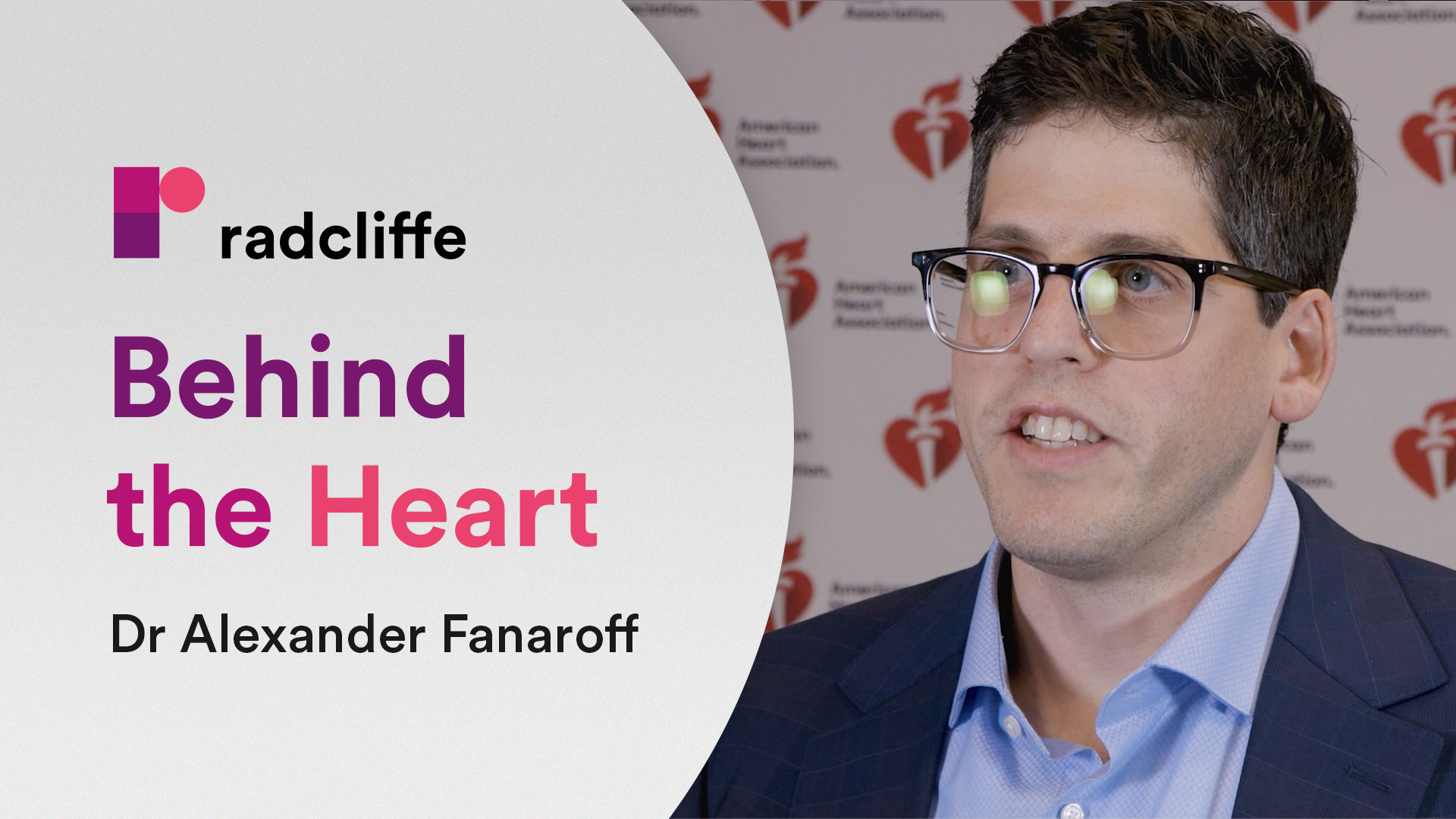 39sPart 5 | Session 3 Making a Difference with Dr Alexander Fanaroff
39sPart 5 | Session 3 Making a Difference with Dr Alexander Fanaroff
-
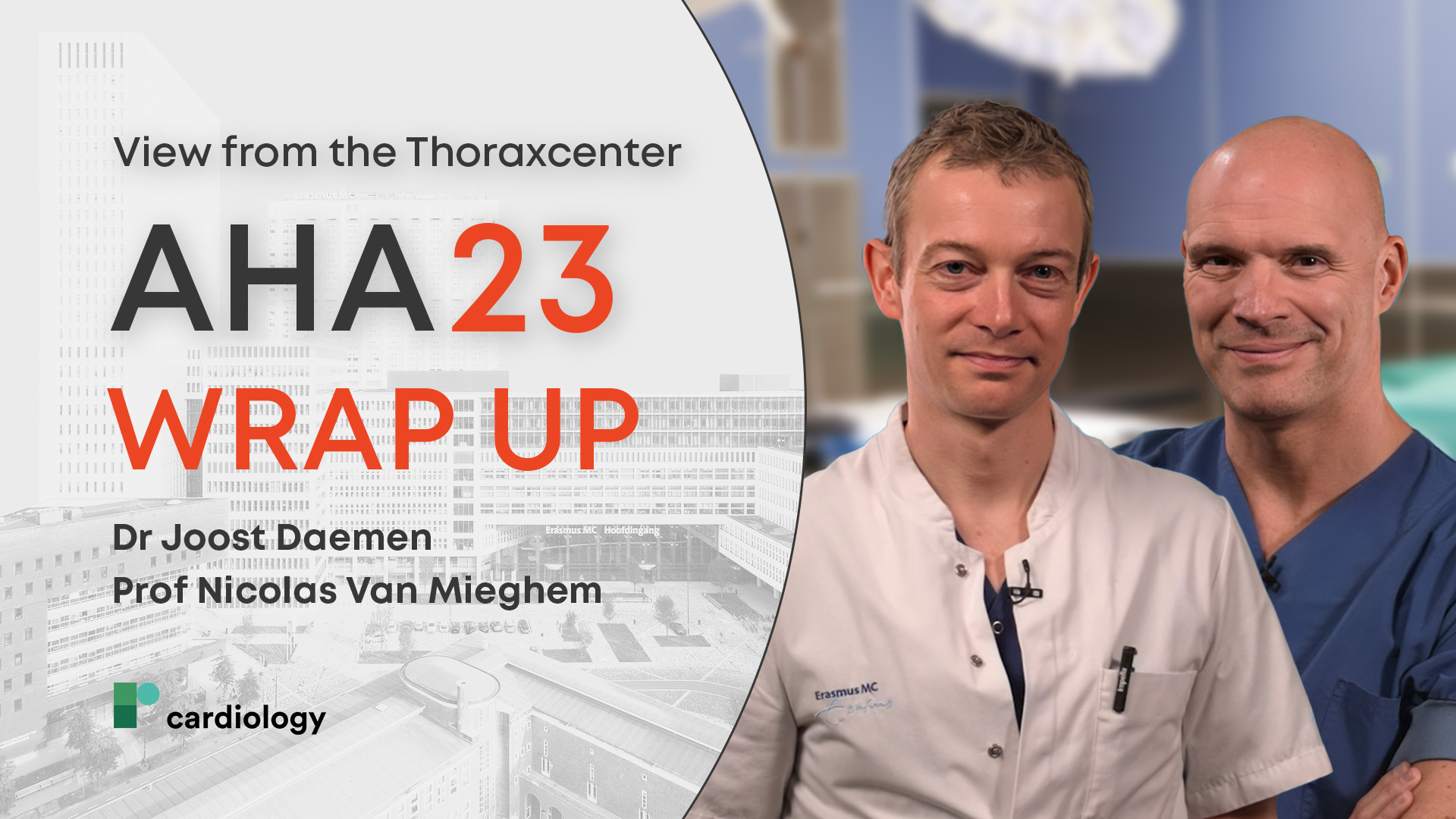 23m 13sPart 1 | Session 1 View from the Thoraxcenter: AHA 23 Late-breaking Science Wrap Up Nicolas M Van Mieghem, Joost Daemen
23m 13sPart 1 | Session 1 View from the Thoraxcenter: AHA 23 Late-breaking Science Wrap Up Nicolas M Van Mieghem, Joost Daemen
-
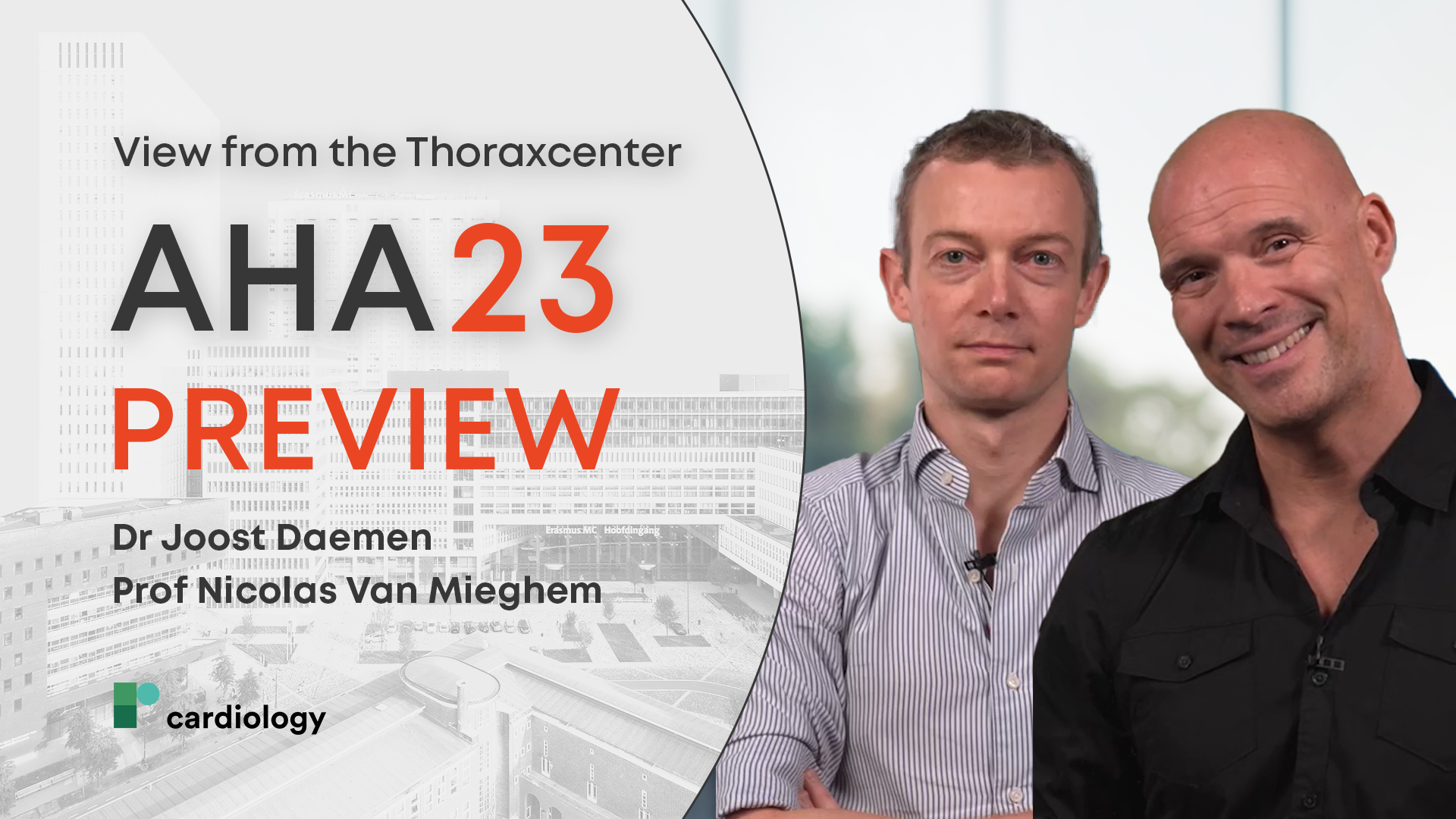 12m 34sPart 1 | Session 2 View from the Thoraxcenter: AHA 23 Late-breaking Science Preview Nicolas M Van Mieghem, Joost Daemen
12m 34sPart 1 | Session 2 View from the Thoraxcenter: AHA 23 Late-breaking Science Preview Nicolas M Van Mieghem, Joost Daemen
-
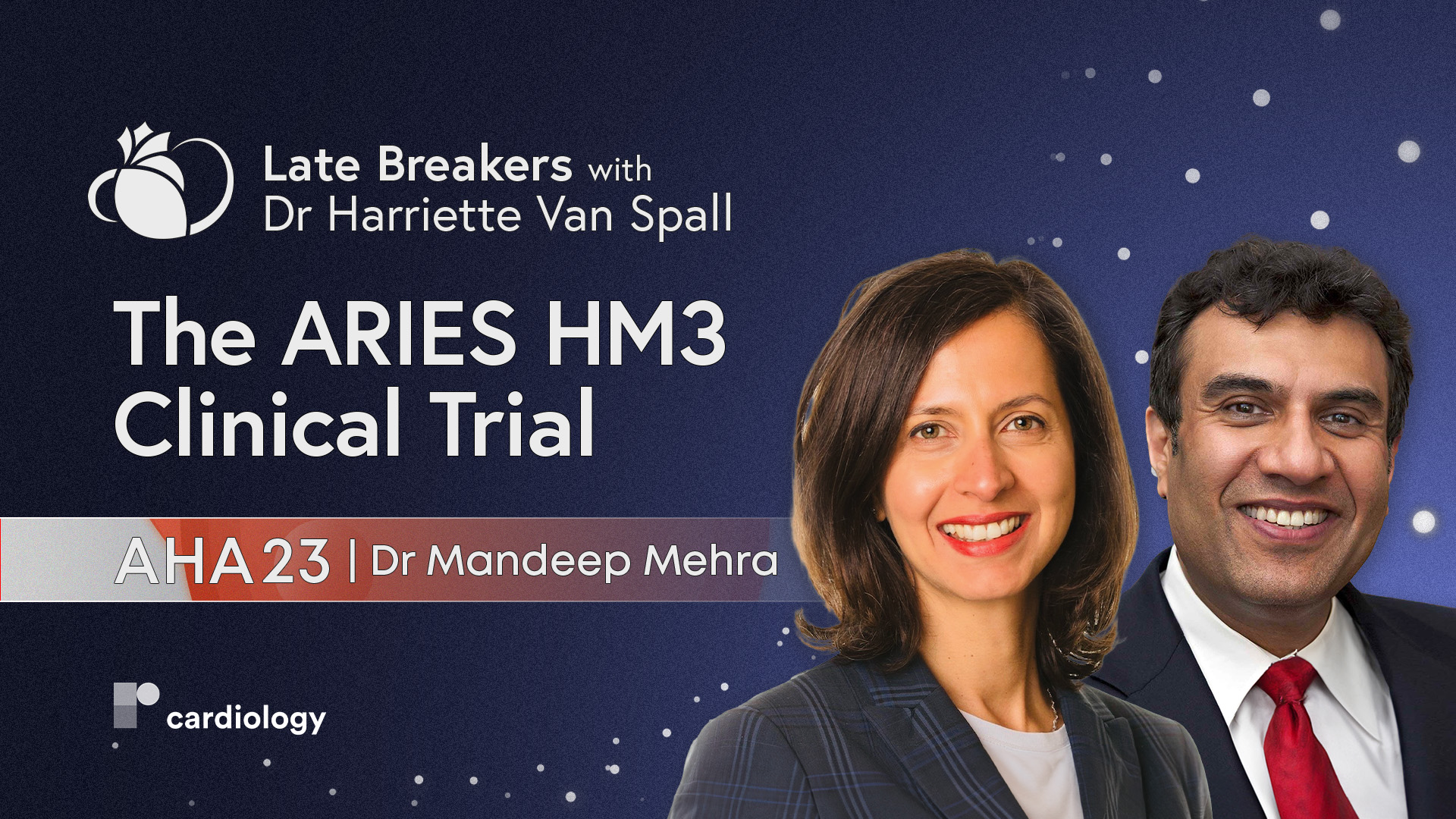 22m 30sPart 2 | Session 1 AHA 23 Late-Breaker Discussion: The ARIES HM3 Clinical Trial Mandeep Mehra, Harriette Van Spall
22m 30sPart 2 | Session 1 AHA 23 Late-Breaker Discussion: The ARIES HM3 Clinical Trial Mandeep Mehra, Harriette Van Spall
-
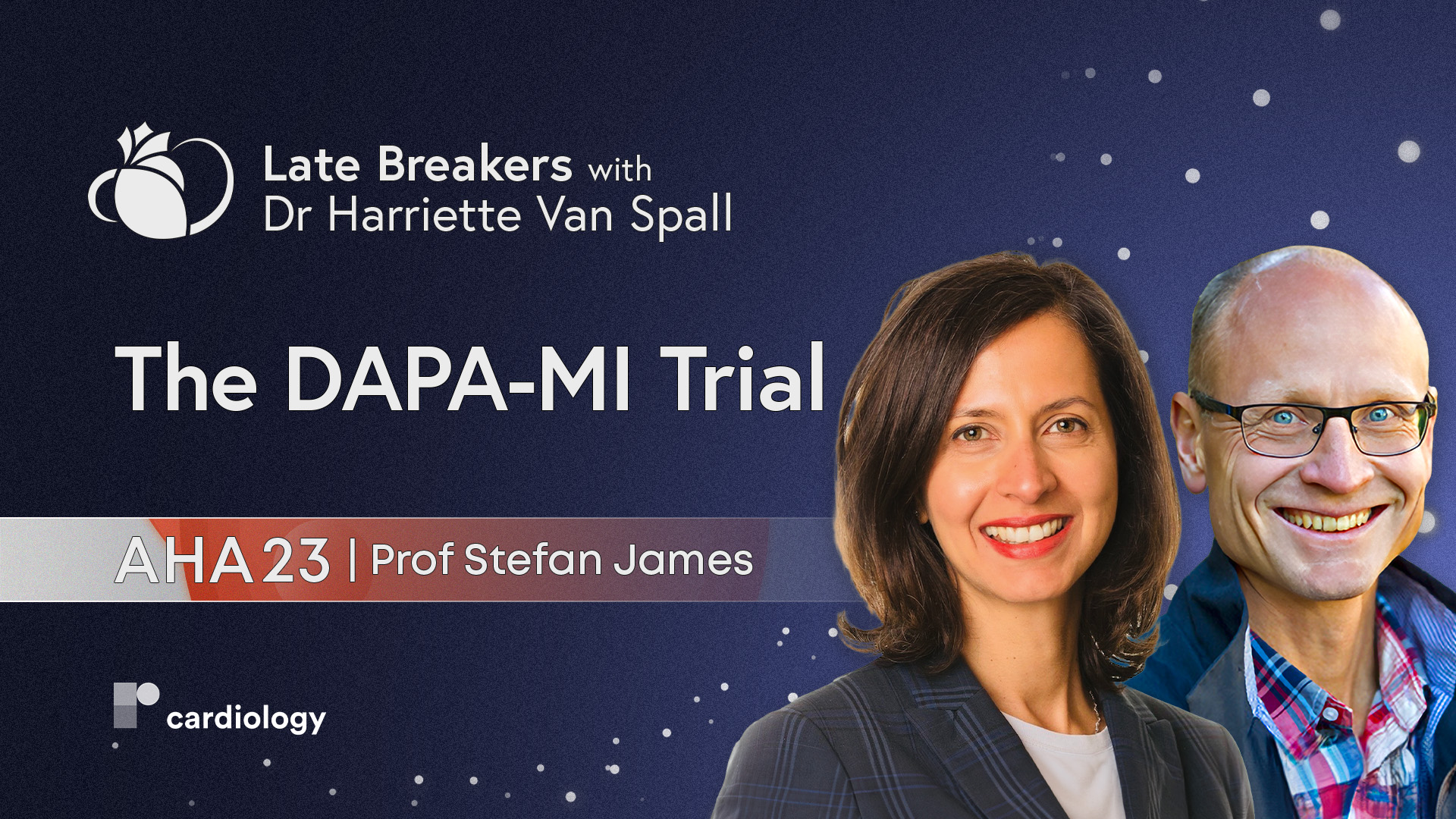 14m 14sPart 2 | Session 2 AHA 23 Late-Breaker Discussion: The DAPA-MI Trial Harriette Van Spall, Stefan James, Jonas Oldgren
14m 14sPart 2 | Session 2 AHA 23 Late-Breaker Discussion: The DAPA-MI Trial Harriette Van Spall, Stefan James, Jonas Oldgren
-
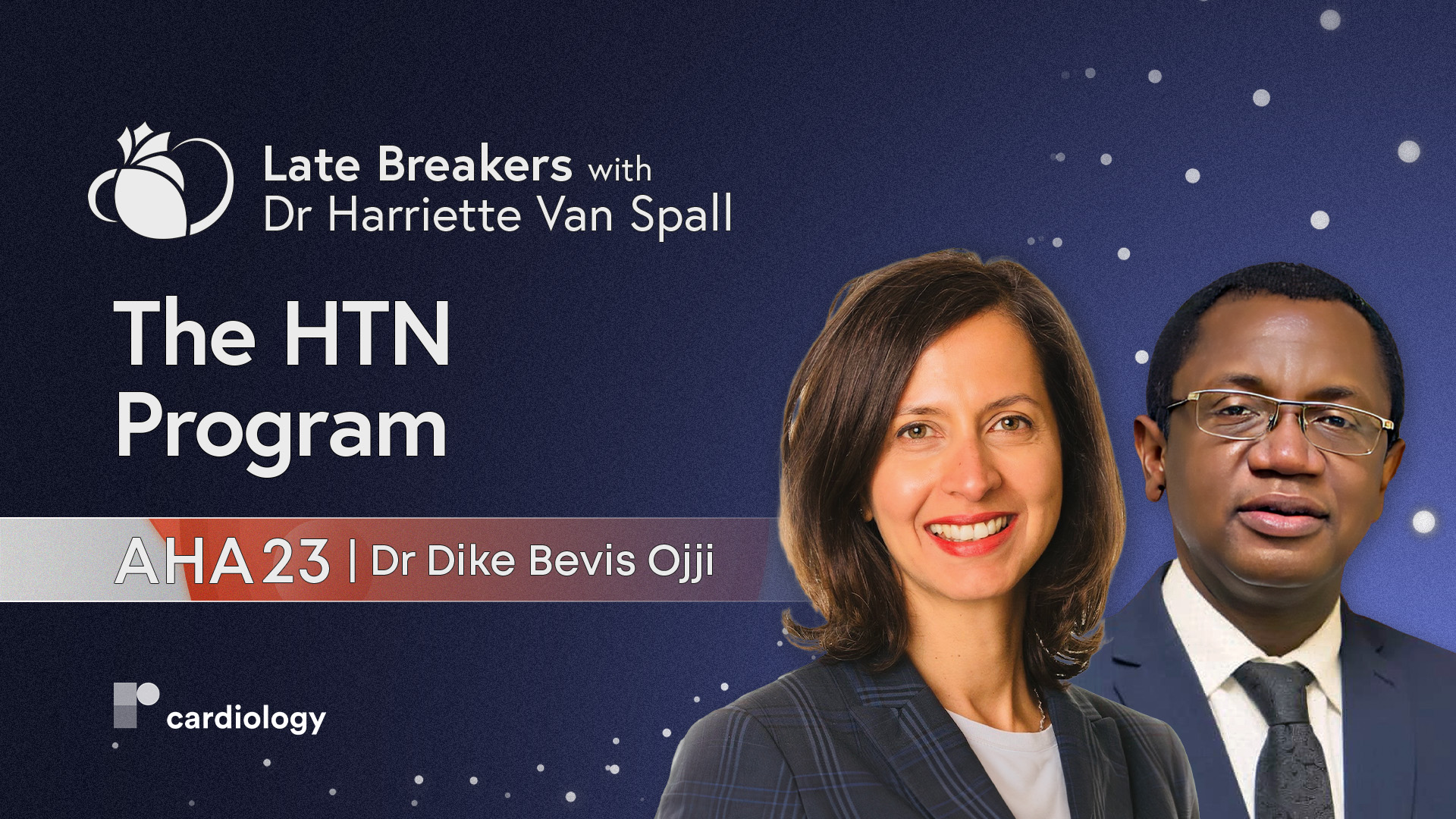 19m 41sPart 2 | Session 3 AHA 23 Late-Breaker Discussion: Hypertension Treatment in Nigeria Program Harriette Van Spall, Dike Bevis Ojji
19m 41sPart 2 | Session 3 AHA 23 Late-Breaker Discussion: Hypertension Treatment in Nigeria Program Harriette Van Spall, Dike Bevis Ojji
-
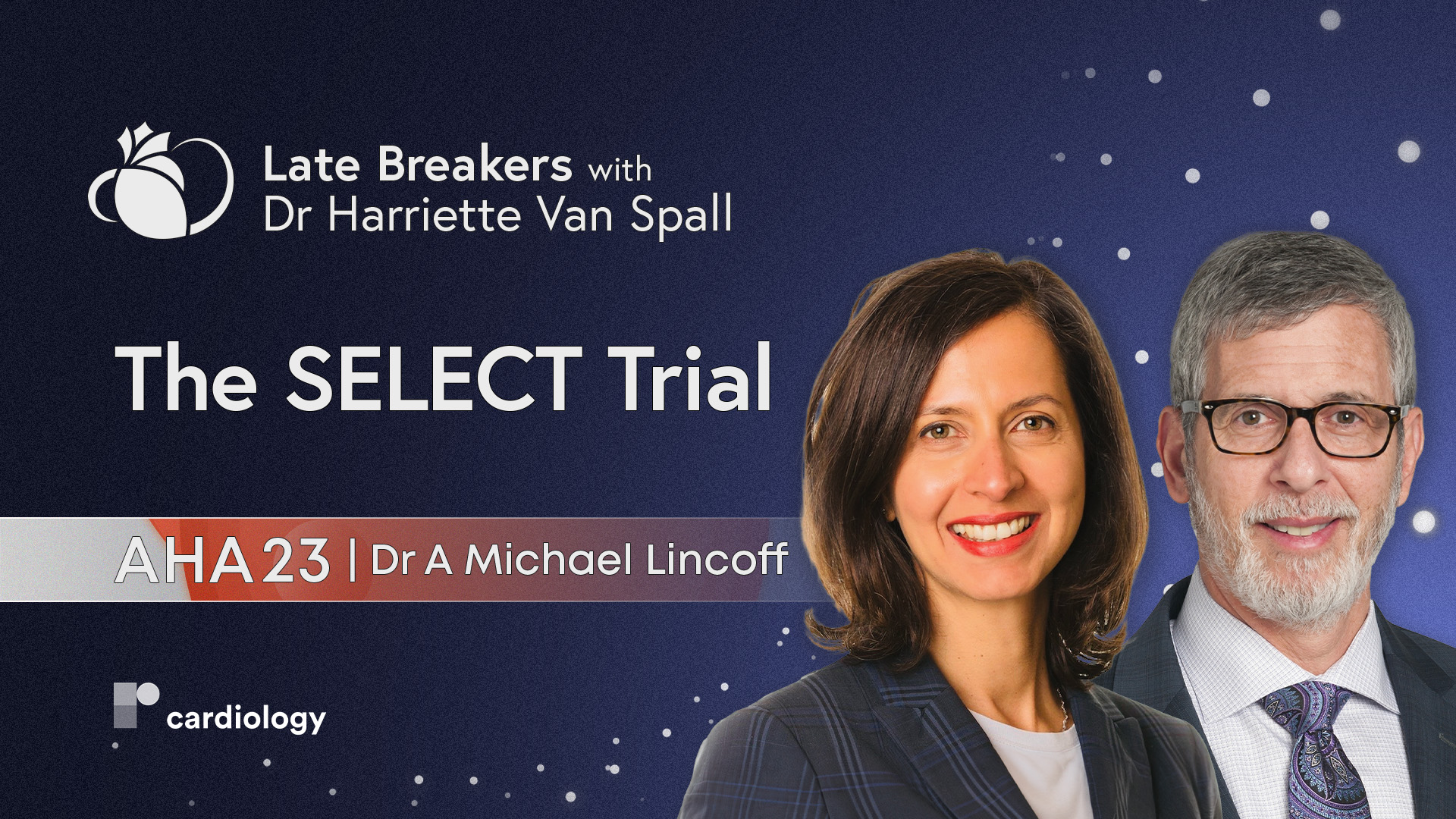 21m 35sPart 2 | Session 4 AHA 23 Late-Breaker Discussion: The SELECT Trial A Michael Lincoff , Harriette Van Spall
21m 35sPart 2 | Session 4 AHA 23 Late-Breaker Discussion: The SELECT Trial A Michael Lincoff , Harriette Van Spall
-
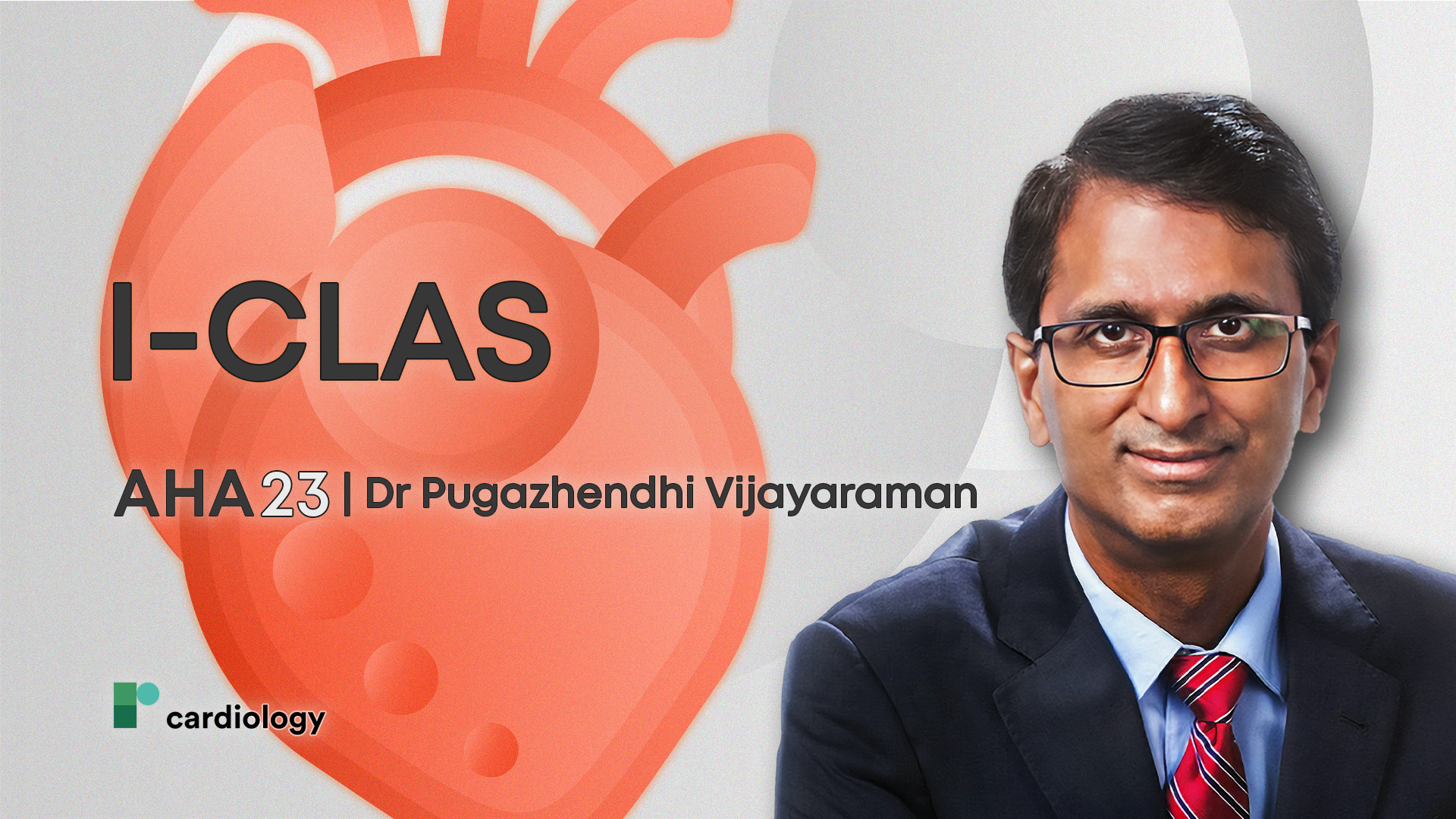 3m 11sPart 3 | Session 1 I-CLAS: Arrhythmic Risk in Biventricular Pacing Vs Left Bundle Branch Area Pacing Pugazhendhi Vijayaraman
3m 11sPart 3 | Session 1 I-CLAS: Arrhythmic Risk in Biventricular Pacing Vs Left Bundle Branch Area Pacing Pugazhendhi Vijayaraman
-
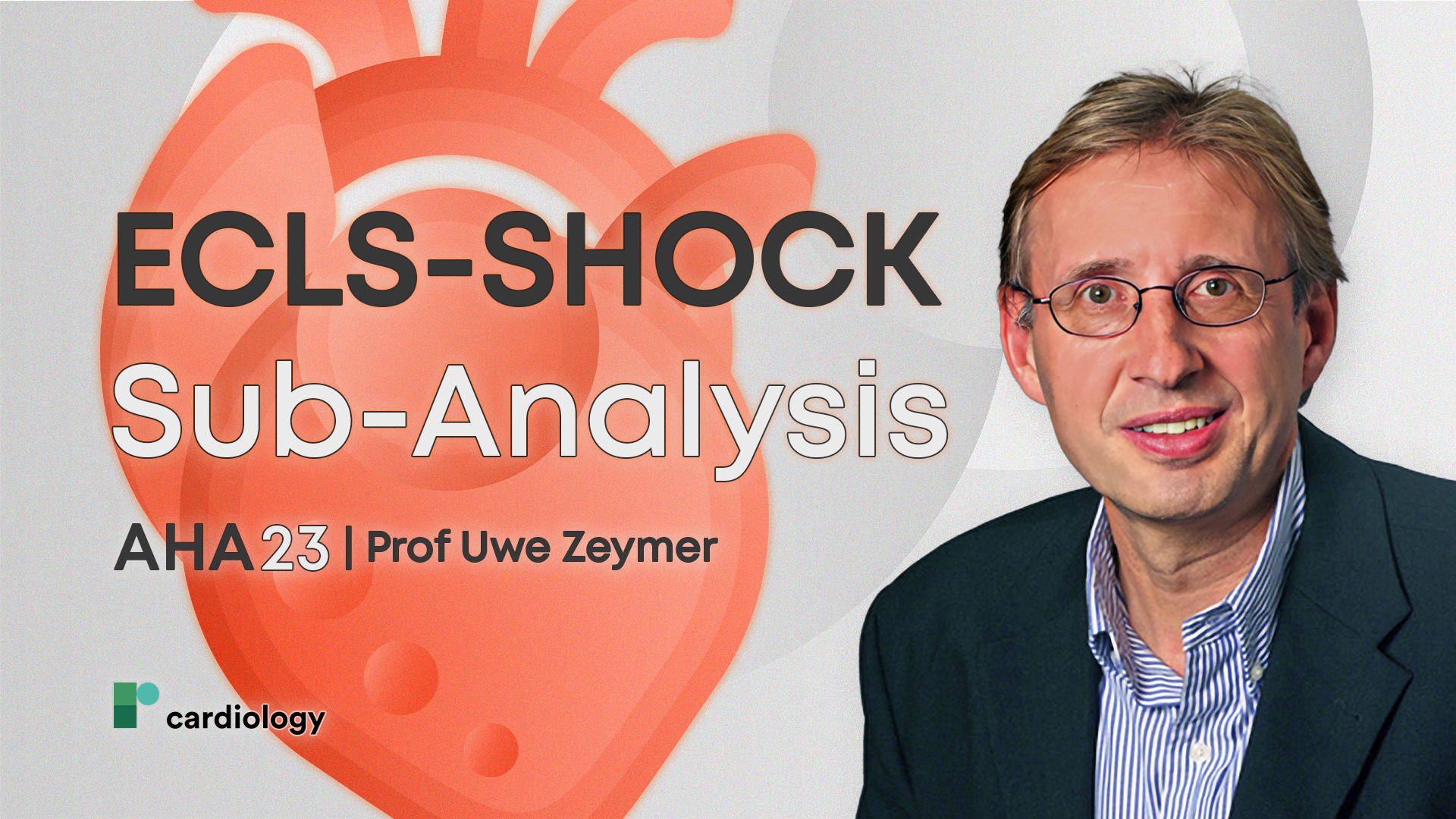 6m 55sPart 3 | Session 2 ECLS-SHOCK: Impact of Cardiac Arrest on the Efficacy of ECLS Patients Uwe Zeymer
6m 55sPart 3 | Session 2 ECLS-SHOCK: Impact of Cardiac Arrest on the Efficacy of ECLS Patients Uwe Zeymer
-
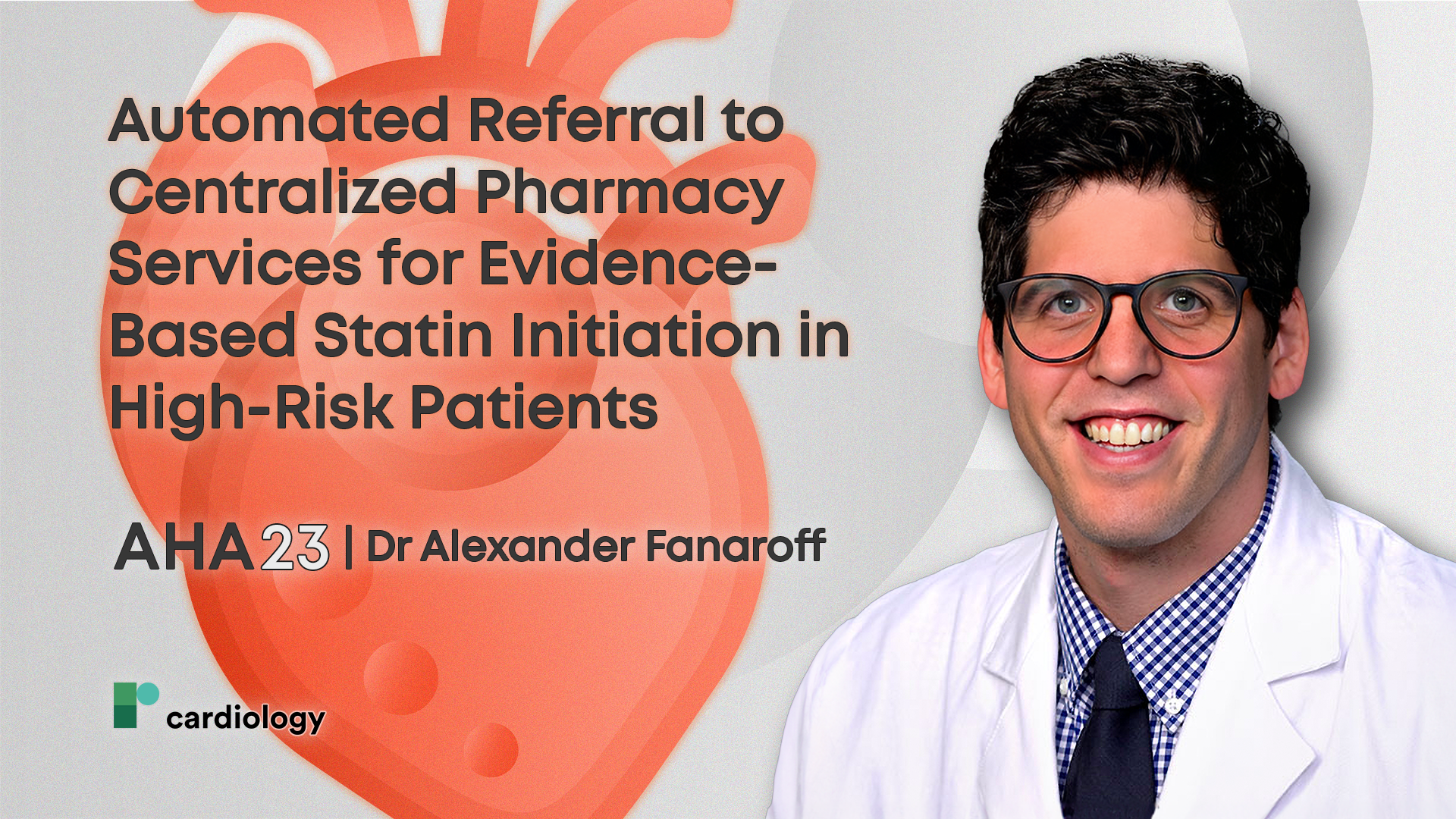 5m 4sPart 3 | Session 3 Automated Referral to Centralized Pharmacy Services for Evidence-Based Statin Initiation in High-Risk Patients Alexander Fanaroff
5m 4sPart 3 | Session 3 Automated Referral to Centralized Pharmacy Services for Evidence-Based Statin Initiation in High-Risk Patients Alexander Fanaroff
-
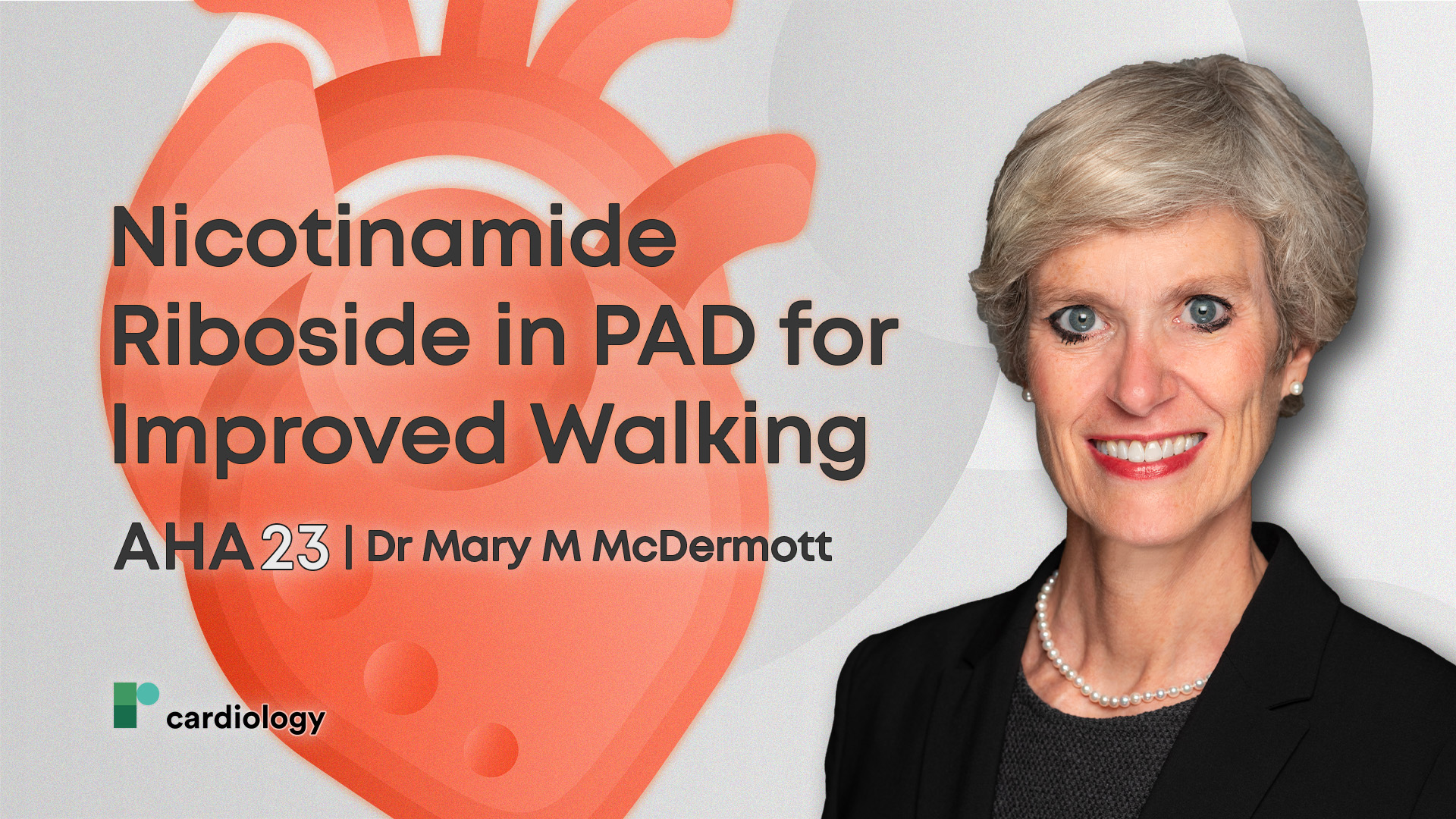 3m 54sPart 3 | Session 4 Nicotinamide Riboside in PAD for Improved Walking Mary McDermott
3m 54sPart 3 | Session 4 Nicotinamide Riboside in PAD for Improved Walking Mary McDermott
-
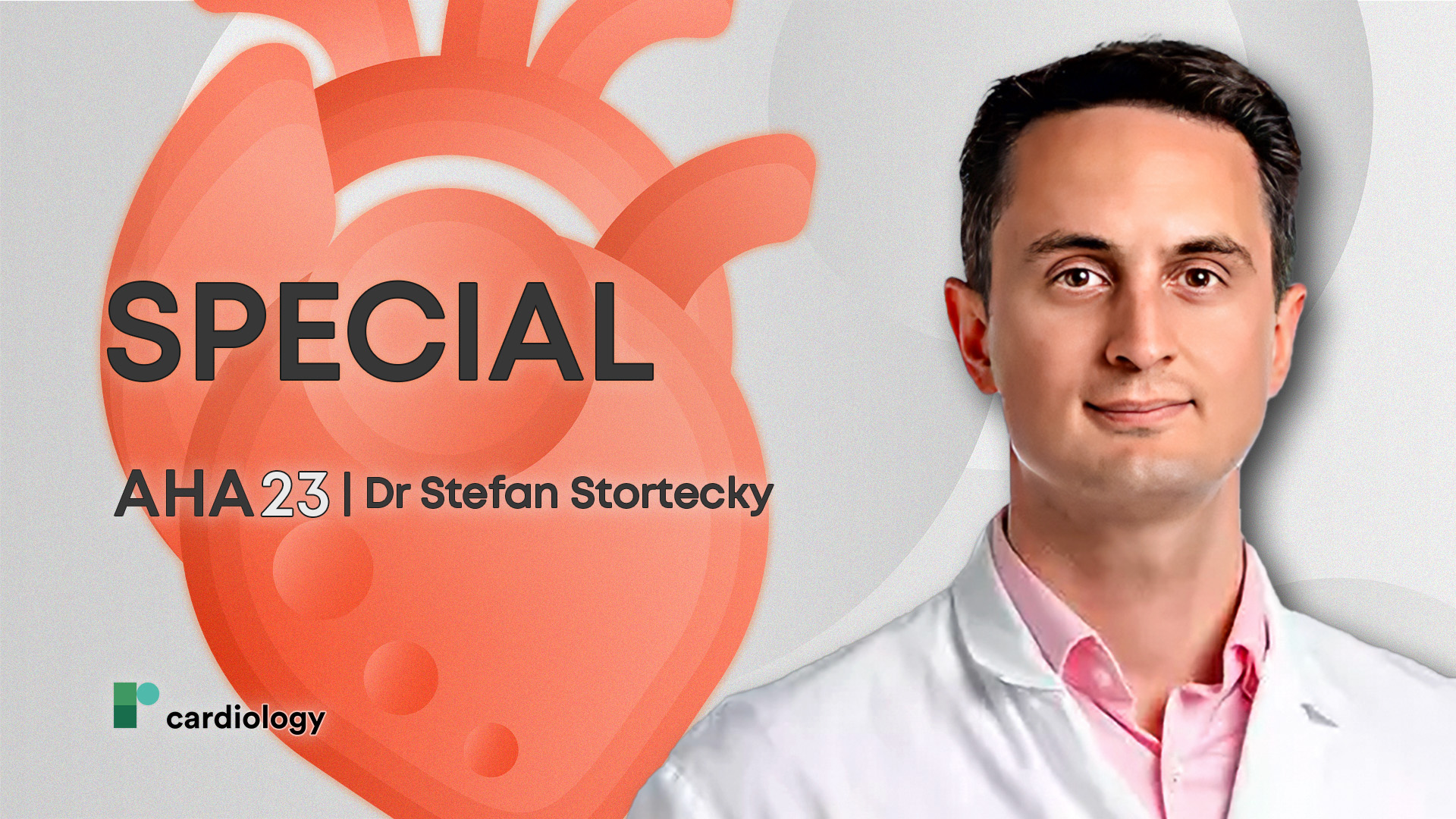 8m 27sPart 3 | Session 5 SPECIAL: Ultrasound-assisted Thrombolysis Vs Pulmonary Embolectomy for PE Stefan Stortecky
8m 27sPart 3 | Session 5 SPECIAL: Ultrasound-assisted Thrombolysis Vs Pulmonary Embolectomy for PE Stefan Stortecky
-
 4m 59sPart 3 | Session 6 Screening for Peripartum Cardiomyopathies Using an AI Enanced Digital Stethoscope Demilade Adedinsewo
4m 59sPart 3 | Session 6 Screening for Peripartum Cardiomyopathies Using an AI Enanced Digital Stethoscope Demilade Adedinsewo
-
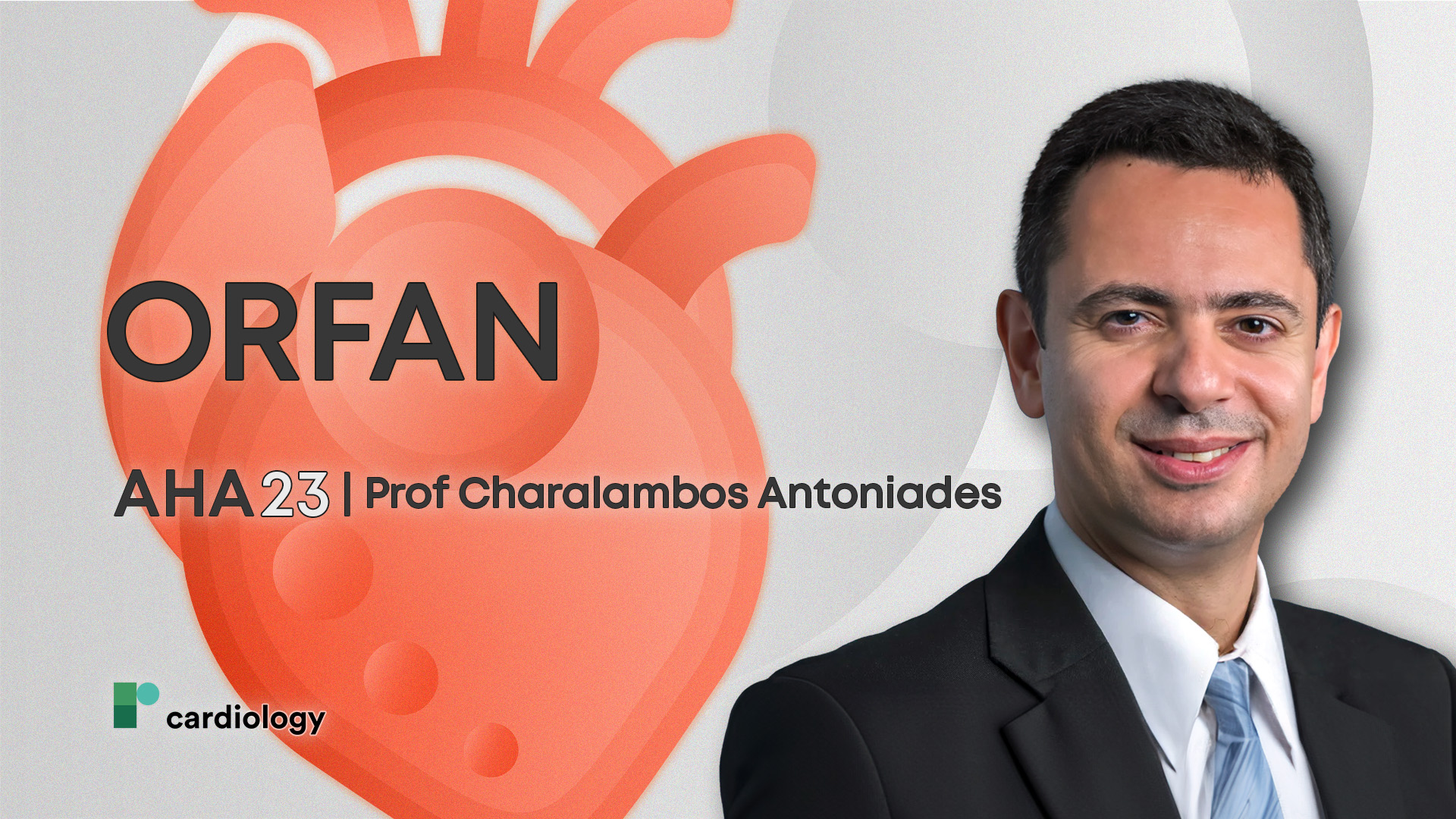 10mPart 3 | Session 7 ORFAN: AI Technology to Improve Risk Stratification of Patients without CAD Undergoing CCTA Charalambos Antoniades
10mPart 3 | Session 7 ORFAN: AI Technology to Improve Risk Stratification of Patients without CAD Undergoing CCTA Charalambos Antoniades
-
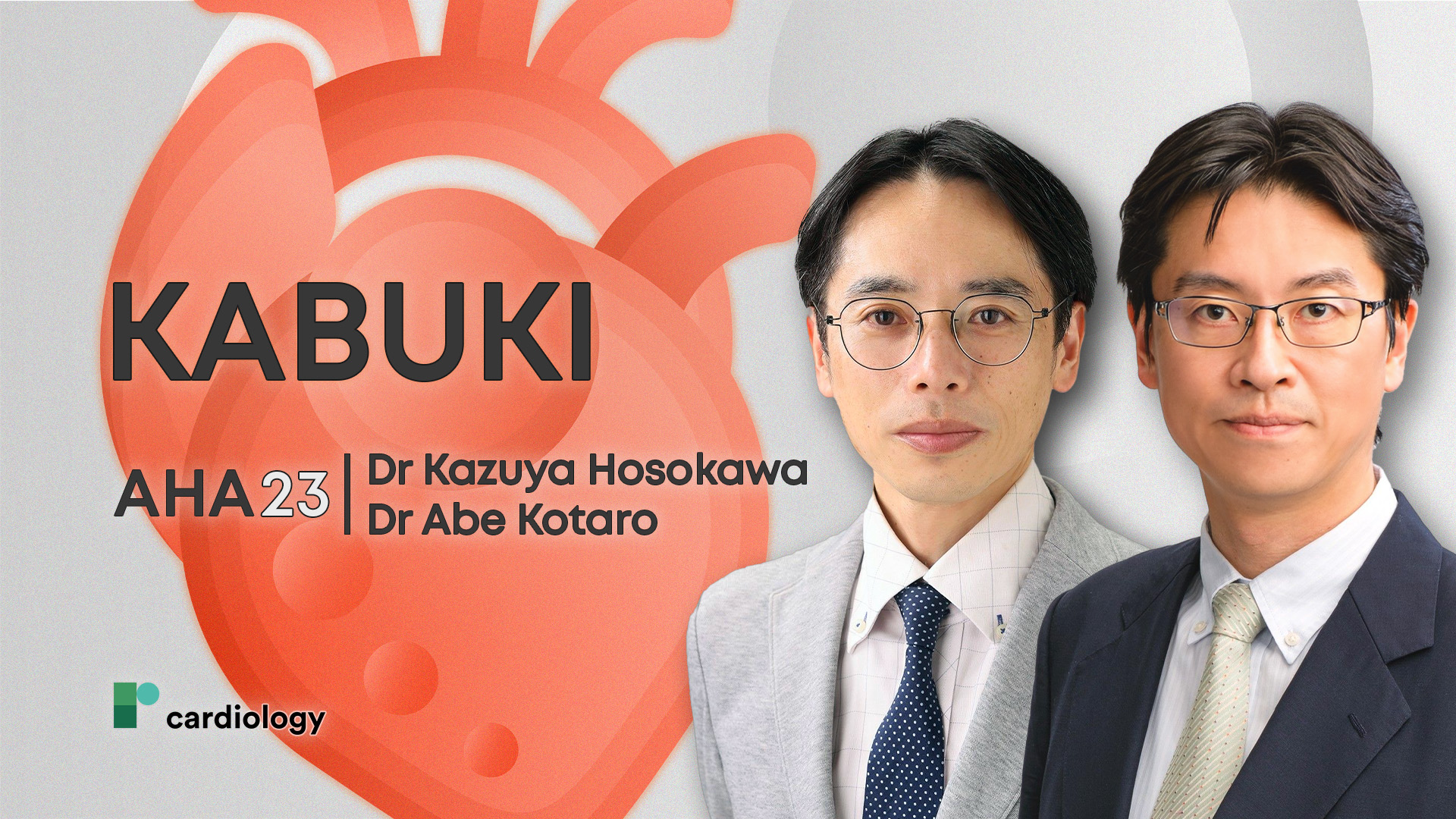 6m 55sPart 3 | Session 8 KABUKI: Edoxaban in Patients with Chronic Thromboembolic Pulmonary Hypertension Kazuya Hosokawa, Abe Kotaro
6m 55sPart 3 | Session 8 KABUKI: Edoxaban in Patients with Chronic Thromboembolic Pulmonary Hypertension Kazuya Hosokawa, Abe Kotaro
-
 10m 9sPart 3 | Session 9 JEWEL-IDE: Jewel P-WCD in Pts at High Risk of Cardiac Arrest John Hummel
10m 9sPart 3 | Session 9 JEWEL-IDE: Jewel P-WCD in Pts at High Risk of Cardiac Arrest John Hummel
-
 4m 59sPart 3 | Session 10 Screening for Peripartum Cardiomyopathies Using an AI Enanced Digital Stethoscope Demilade Adedinsewo
4m 59sPart 3 | Session 10 Screening for Peripartum Cardiomyopathies Using an AI Enanced Digital Stethoscope Demilade Adedinsewo
Overview
Stay up-to-date with the latest data in cardiovascular science with the help of renowned experts and emerging voices who offer concise summaries, in-depth discussions, and critical reviews to keep you informed.
In their regular View from the Thoraxcenter series, Prof Van Mieghem and Dr Daemen provide valuable insights into the most anticipated trials of AHA 23. With their keen awareness of cardiovascular innovation, they offer concise perspectives on late-breaking data.
Dr Harriette Van Spall returns with her Late-breaker Discussion series featuring ground-breaking research presented at Scientific Sessions. Join her and lead investigators as they discuss methodology, results, and impact on patient care.
Watch our Expert interviews for late-breaking science methodology, results and implications for practice and research in under 10 minutes.
Delve into the personal motivations of some of the investigators, and gain valuable insights and advice for early career researchers in our Behind the Heart series. These short videos offer an opportunity to look beyond scientific achievements and connect on a more personal level.
More from this programme
Part 1
View from the Thoraxcenter
In their regular View from the Thoraxcenter series, Prof Van Mieghem and Dr Daemen provide valuable insights into the most anticipated trials of AHA 23.
Part 2
Late-Breaker Discussions with Harriette Van Spall
Dr Harriette Van Spall, recipient of 2022's AHA Dr. Nanette K. Wenger Award, returns with her Late-breaker Discussion series featuring ground-breaking research presented at Scientific Sessions. Join her and lead investigators as they discuss methodology, results, and impact on patient care.
Part 3
Expert Interviews
Watch our Expert interviews for late-breaking science methodology, results and implications for practice and research in under 10 minutes.
Part 4
Highlights
About the episode
AHA 2023 — We are joined by Dr Alexander Fanaroff (Penn Medicine, US) to discuss the findings from a cluster randomised trial of automated referral to centralised pharmacy services for evidence-based statin initiation in high-risk patients.
Gaps have been observed in evidence-based statin prescriptions, where more than 50% of US adults with an indication for atherosclerotic cardiovascular disease are not prescribed statins at the guideline-recommended intensity. Where physicians have limited time to cover preventative needs in-office visits, pharmacists could be used to increase statin prescriptions in appropriate patients.
The SUPER LIPID program aims to test two strategies for the integration of centralised pharmacy services for lipid management into clinician workflow; an interruptive pop-up notification strategy, and a non-visit based asynchronous strategy. Two parallel clinical trials were performed in 10 internal medicine and family medicine clinics in Philadelphia.
Findings suggested that an asynchronous strategy increased prescriptions of any statin by 16% as compared to standard care, and appropriate dose statin by 17%. The interruptive notification strategy had a smaller effect on statin prescriptions, and no effect on appropriate dose prescription, suggesting that a centralised asynchronous model could be an effective approach to increasing statin prescription for high-risk patients.
Questions:
- What is the reasoning behind this trial?
- What was the patient population and study design?
- What are the key findings?
- What are your take-home messages?
- Were there any unexpected or surprising results in the trial?
- What are the next steps?
Recorded on-site at AHA Scientific Sessions 2023, Philadelphia.
Interviewer: Mirjam Boros
Editor: Jordan Rance
Video Specialists: Dan Brent, Mike Knight, Tom Green
Faculty Biographies
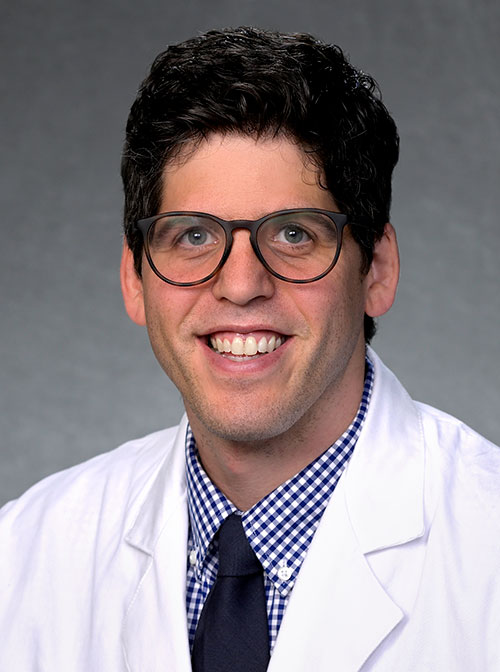
Alexander Fanaroff
Dr. Alexander Fanaroff, MD, MHS, is an accomplished interventional cardiologist and Assistant Professor of Medicine within the Division of Cardiology at the University of Pennsylvania. His extensive medical education includes completion of medical school, an internal medicine residency, a cardiology fellowship, and an interventional cardiology fellowship, all at Duke University. Dr. Fanaroff furthered his expertise by obtaining an MHS in clinical research from the Duke/NIH Clinical Research Training Program during a two-year research fellowship at the Duke Clinical Research Institute.
Dedicated to advancing cardiovascular care, Dr. Fanaroff's research endeavors focus on identifying and addressing inefficiencies, variations, and barriers in cardiovascular care delivery. He actively develops solutions to enhance patient and clinician behavior, implementing and testing these interventions through pragmatic clinical trials. His specific interests lie in promoting physical…








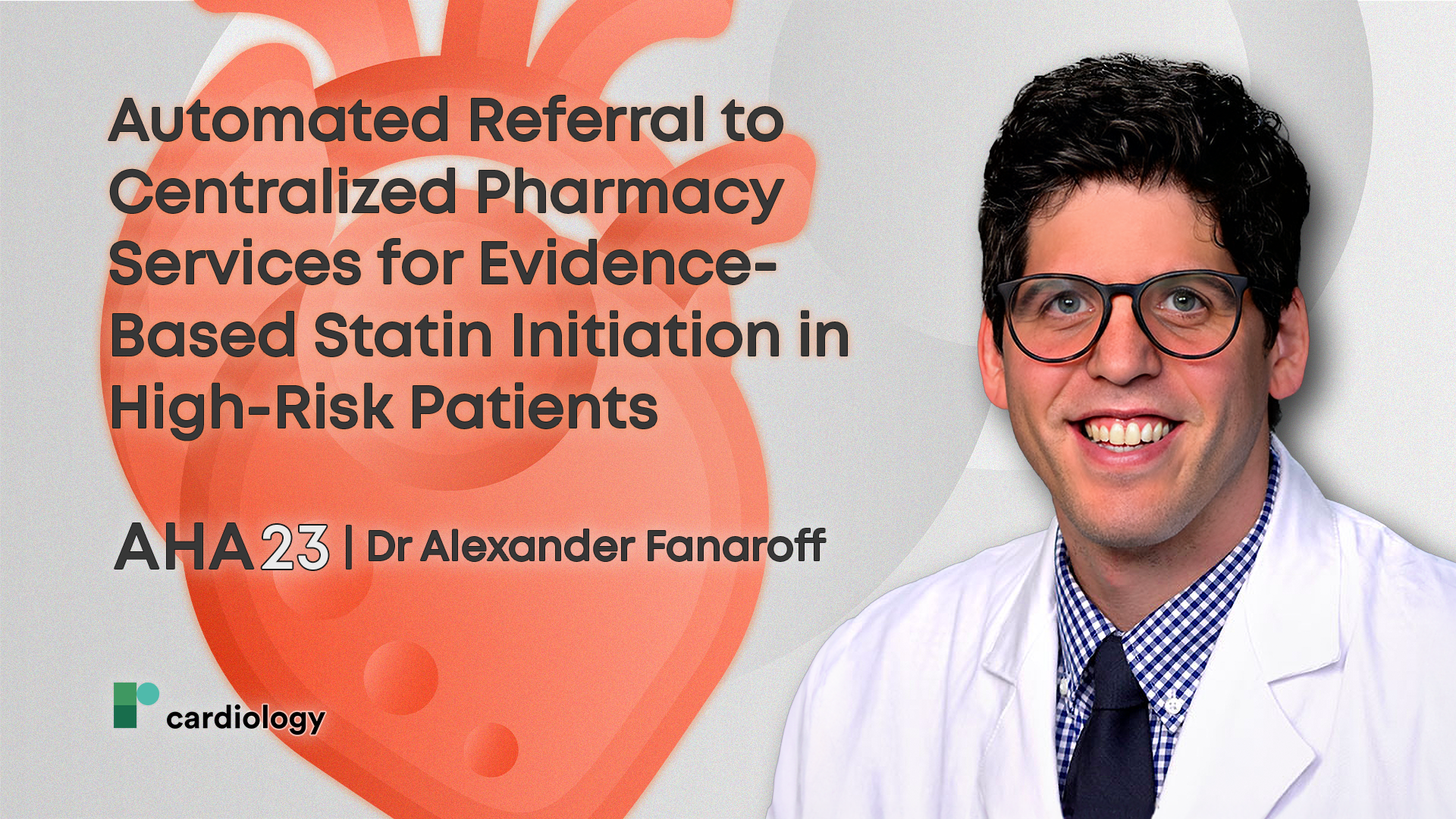
Comments